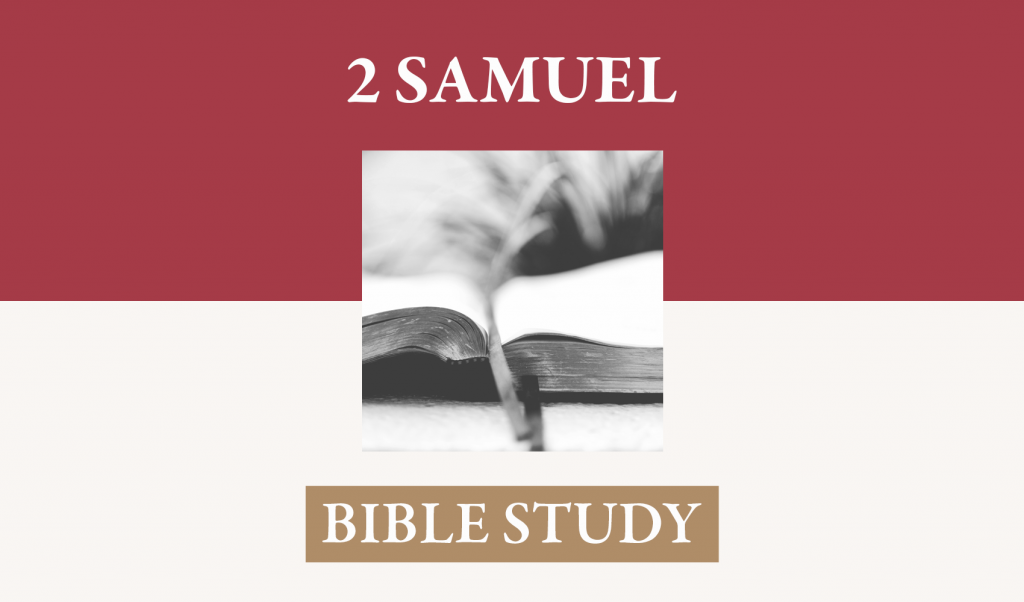Historical Context. In Joshua 9:1-27, the story is told of the Gibeonites and their crafty way of making a covenant with Israel. While some of the groups prepared for battle against Israel, the Gibeonites took another path to preservation. They seemed truly convinced that the God of the Israelites had given them victory (Joshua 9:9, 10) over all groups that opposed them. Feigning being from a far distant people, not within the land promised to the children of Israel, representatives of the Gibeonites traveled under pretense of having come a long way through desperate conditions to seek this covenant of friendship. After some questioning, and without consulting the Lord, the leaders of Israel swore to them “by the Lord, the God of Israel” and “made peace with them and made a covenant with them.” They knew that to break this covenant, even though made thus, would bring “wrath upon us, because of the oath we swore to them” (Joshua 9:20). Though we do not have the narrative of the occasion when Saul violated this covenant, for some reason that he felt compelling, as he was given to deadly whims, he attacked the Gibeonites and sought to eliminate them. Perhaps he did this in an attempt to make up for his failure to execute the war against the Amalekites (1 Samuel 15) with the thoroughness commanded him. At any rate, he had brought dishonor to Israel and the name of Yahweh by his breaking the covenant. For this reason, God sent a famine to Israel for three years consecutively.
I. The Expansive nature of Guilt
A. David understood that the drought was a judgment of God for some evil among the people of Israel. Fittingly, therefore, he “sought the presence of the Lord.” He found the answer he sought. In spite of a covenant of peace, Saul had attacked the Gibeonites and put a large number to death. God identified this violated covenant as the reason for the drought.
B. Guilt comes upon a people in several ways. We must be careful to look at these ways discreetly so as not to excuse ourselves when there is reason for guilt, and not to take a false guilt upon ourselves, or fall prey to the unwarranted accusations of others, when Scripture does not require it.
- We are particularly responsible for our actual transgressions. This includes sins of commission and sins of omission (Ezekiel 18:1-20). All of these are violations of the law of God and flow from lack of love to God and love to neighbor.
- It includes an honest appraisal of an indwelling resistance to God’s rule over us so that we recognize that violation of one aspect of the Law of God includes a guilt of having virtually broken all of them. When we break God’s law, we transgress against the Lawgiver (James 2:8-13).
- We may be connected by sympathy to the sins of others (Matthew 23:29-35). If we do not sympathize with the sins of the past that were characteristic of the culture in which our values developed, or particular sins and corrupt affections embraced by family and friends, we do not share that guilt. If, however, we embrace the sins and sympathize with them or seek to justify them in their commission of evil, we share their guilt. In these matters, we must be careful not to indulge self-righteousness or accuse those who have gone before us of sins where there was no sin. If, however, moral turpitude grounds the action or attitude, it is sin, and those who see it must condemn it and seek to excise its influence from their lives.
- Covenantally, the entire human race is connected to Adam, considered in him in his original test of obedience and with him in his first transgression. His sin was ours and passed on us in two ways.
- One, we are guilty of the violation of the positive command he broke and thus violated the law of love to God. Condemnation has come on us as a result (Romans 5:12; 1 Corinthians 15:21, 22).
- Not only Adam’s guilt, but Adam’s death came on us (Romans 5:14). This death included the certainty of physical death and the immediate inception of spiritual death (Psalm 51:3-10; Ephesians 2:1-3; Colossians 2:11-14).
II. God’s anger demands a just recompense (Verses 1-4).
A. David recognized that recompense must be made to the Gibeonites for the sin of Saul and Israel against the covenant. They did not ask for monetary recompense nor did they plan to make an attack on Israel to kill as Saul had done to Gibeon. As servants of the Israelites they could not invoke the right of the “avenger of blood.” Nevertheless, an injustice had been done, God’s name had been dishonored, and Israel as a covenant nation must make right this violation of a covenant given in the name of the Lord. David, therefore, voluntarily asked them what would be involved in a just retribution for the sin against them. “I will do for you whatever you ask.”
B. Even so the just anger of God calls for recompense. “In the day you eat thereof, you shall surely die” (Genesis 2:17). Sin, as a matter of inexorable justice in violation of the infinite glory of God calls for death.
C. God called for the death of those who worshiped the calf of gold. “Now therefore let me alone, that my wrath may burn hot against them and I may consume them. … Whoever has sinned against me, I will blot out of my book. . . . In the day when I visit, I will visit their sin upon them” (Exodus 32:11, 33-35). He will “by no means clear the guilty” (Genesis 34:7).
D. Forgiveness, therefore, is no person’s due, but arises solely from merciful provisions reserved exclusively for the divine prerogative. He is longsuffering, filled with mercy, and forgives trespasses. He does it, however, in accord with his own will and according to his own purposes: ‘I will have mercy on whom I will have mercy” (Exodus 33:19).
E. Our internal moral compass manifests itself in our condemnation of others when we observe their wrongdoing; we however, do the same things and thus speak judgment against ourselves when we speak against another (Romans 2:1-5).
F. By the middle of chapter 3 of Romans, Paul has reasoned the logic of sin to the conclusion, “None is righteous, no not one; no one understands; no one seeks for God … By the works of the law no human being will be justified in his sight, since through the law comes knowledge of sin” (Romans 3: 10, 11, 20).
III. Atonement from the blood line of the Offender (Verses 5-9). It would be no good for David to offer to give Philistines to the Gibeonites. Saul had offended, and Saul must pay. But Saul was dead. They asked that the “man who consumed us and planned to exterminate us” should be the one who pays. They asked, therefore, for seven descendants of Saul. These not only were Israelites, but were the most exalted members of the offending family. The king’s offspring were given to the Gibeonites. Two sons of Saul, daughters of Saul’s concubine Rizpah, and five grandsons, sons of Saul’s daughter Merab, were handed over to the Gibeonites and they hung them.
A. When God provided an atonement for our sins, he came from our race, a true man, without sin, who could disarm the accusation of Satan and provide sufficient satisfaction to the just wrath of God. “Since therefore the children share in flesh and blood, he himself likewise partook of the same things, that through death he might destroy the one who has the power of death, that is, the devil; . . . he had to be made like his brethren in every respect, . . . to make propitiation for the sins of the people” (Hebrews 2:14, 17).
B. Not only was he of our race, however, but he was of the highest pedigree in his person, for he also was the Son of God. “The word was God and . . . . the word was made flesh and dwelt among us. . . . and he lays down his life for the sheep” (John 1:1, 14; 10:15). Nothing less could redeem us from our sin. He must be of our race, but he must be sinless and of infinite value. “Much more have the grace of God and the free gift by the grace of that one man Jesus Christ abounded for many” (Romans 5:15).
C. If we are astounded that David would surrender the sons of Saul for a propitiation, we must be completely in awe of the reality that the Father “spared not his own son but delivered him up for us all” and will thus, because he has given us his Son, also “freely give us all things” that pertain to life, godliness and eternal life (Romans 8:32; 2 Peter 1:3).
IV. The Natural Affection of a mother defies weather and beast (Verse 10). Though she was a concubine, the power of natural love made her defy the weather, birds, and beasts in protecting the dead bodies of her sons. Her zeal arising from natural love made her regardless of her own life and comfort so that she might show her sacrifice of self for the sake of her sons. David’s natural affection for Absalom so gripped him that he was pressed into an irrational state of mourning. Solomon’s knowledge of natural affection prompted him to bold displays of wisdom (1 Kings 3:16-28).
V. An honorable burial for the Offender and those sacrificed for his crime (Verses 11–14)
A. When David heard of this, he immediately honored her devotion by giving an honorable interment to Saul, Jonathan, and the seven descendants of Saul. (Verse 12, 13). The debt had been paid, atonement for the trespass had been made, and the bodies could be received and removed from exile.
B. God heard the prayers of his people for restoration of the land from its time of drought. “If we confess our sins, he is faithful and just to forgive us our sins and cleanse us from all unrighteousness” (1 John 1:9).
C. Our love for Christ flows from a spiritual source and is undying. Clinging to him is not a matter of mere natural affection but springs from the source of eternal life itself.
- Love for him and vital union with him is absolutely necessary if we are to have the blessing of eternal life. The Father gave him so that whoever feeds on him will live because of him. His flesh is the bread of life indeed, and his blood is the water of life, the living water, indeed. His incarnation was necessary and his death was necessary. We must receive him in his person and work or remain with the burden and consequences of our own debt.
- Utter loyalty to him must go beyond the loyalty of Rizpah to her sons. “Whoever loves father or mother more than me is not worthy of me, and whoever loves son or daughter more than me is not worthy of me. And whoever does not take his cross and follow me is not worthy of me. Whoever finds his life will lose it, and whoever loses his life for my sake will find it” (Matthew 10:37-39). Given the reality of the strong ties of natural love, Jesus still could say without equivocation, “A person’s enemies will be those of his own household.”
D. God’s love for us goes far beyond that of Rizpah for her sacrificed sons.
- John defines love in terms of the giving of the Father. “Herein is love, not that we loved God but that he loved us and sent his son to be the propitiation for our sins” (1 John 4:10).
- God’s love was manifest, not for his friends, but for his enemies: “God shows his love for us in that while we were still sinners, Christ died for us. . . . For if while we were enemies we were reconciled to God by the death of his Son, much more, now that we are reconciled, shall we be saved by his life” (Romans 5: 8, 10).
- God’s love overflows in that he not only reconciles us as his friends, but claims us as his children: “Behold what manner of love the Father has bestowed on us that we should be called the children of God; and so we are. . . . By this it is evident who are the children of God and who are the children of the devil; whoever does not practice righteousness is not of God, nor is the one who does not love his brother” (1 John 3:1, 10). The love of God not only is forgiving, and reconciling, but transforming.
- If the king of Israel honored the devotion of a concubine, how much more will the Father, the Ruler of all things, honor the obedient, voluntary, substitutionary death of his Son. By this death he remains faithful to his covenant of redemption and he performs justly even when he forgives sins that deserve eternal wrath.
VI . Preparing our hearts for God’s way of Salvation -Threads of Redemptive Truth
A. The Gospel first of all is a word about propitiation and substitution.
B. If we are struck with the seeming incongruity of the sacrifice of Saul’s grandsons and sons, we must be infinitely more astounded that God gave his beloved Son that his wrath might be averted from sinners.
C. Mephibosheth, who was spared, again is a type of the elect of God 21:7.



















